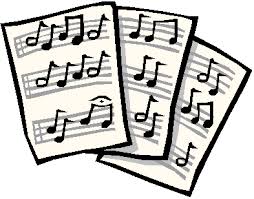Occasionally I will browse the forums on ChoralNet looking for interesting discussion. A question in a recent forum caught my attention as one that is likely very applicable to many of our members: How do you organize your repertoire? How do you keep track of pieces you have recently performed? Click the link in the previous sentence to read the responses to that question on the forum.
Along with this question comes that of the repertoire itself. How do you find new repertoire to program in your concerts and rehearse with singers? Both the Choral Journal and ChorTeach offer helpful resources.
The new ChorTeach index has a category for repertoire that specifically details the articles that are available on this topic. Such articles include: “A Thematic Approach to Planning Choral Programs” by Shereé Stoppel; “Finding Repertoire: Confessions of a Recovering Choral Kleptomaniac” by David Giessow; “Repertoire Search Strategies” by James D. Niblock; and “What Do You Program?” by Daniel Monek.
In a previous ChoralNet blog, I shared about the three-part Choral Journal article “Notes for Success: Advice for the First-Year Choral Teacher” that was printed last year. That first blog discussed the question: How Do You Best Establish a Grading Strategy? In the September 2015 issue, the question of how to find repertoire was addressed by four choral conductors. Some of their suggestions are below:
“ACDA has an incredible amount of resources to help you select music for your choirs. Reach out to your divisional and national R&R chair regarding your needs. Additionally, make sure of state contest lists such as the Texas Prescribed Music List. These lists have been governed by committees and the literature has been deemed valuable by experienced conductors.” – Jennifer Alarcon
“Find a music store that carries a lot of sheet music in its library and look through songs. Before each year, I go into JW Pepper’s store in Minneapolis and pour through the songs in their library…some of which I might never have found by searching specifically online.” – Seth Boyd
“The book Shaping Sound Musicians (O’Toole, 2003) lists nine criteria to gauge whether a composition has artistic merit: uniqueness, form, design, unpredictability, depth, consistency, orchestration/voicing, text, and transcendence. Goetze, Broeker, and Boshkoff (2009) offer six criteria for examining potential repertoire for younger choirs: text, singability, form, part-writing techniques, accompaniment, and pedagogical implications. Use these categories or create your own, but thoroughly examine all aspects of any piece you consider programming.” – Philip Silvey
You can read the complete answers by viewing the online e reader or downloading the PDF here. (Note: You must be logged into the acda.org site as a member in order to access the Choral Journal online.)
Now I bring these questions to you: How do you find repertoire? What factors do you keep in mind when deciding what pieces to perform? How do you organize your repertoire? Leave your thoughts and comments below!



Fahad Siadat says
Rather than resources that provide a ton of pieces, like these new huge databases, I prefer to find rep. through publishers that have a focus I am interested in. This is especially possible with smaller publishers who tend to focus on a niche of style and sometimes even choir type or difficulty level (appropriate for children or college choirs, for example). Once you find those publishers, they basically do most of the search and curation work for you, making repertoire selection much easier.
A couple of examples:
– Earth Songs (http://earthsongschoralmusic.com) is great if you are looking for works influenced by folk/world music traditions.
Schott Music (https://en.schott-music.com) is an old European publisher that tends to have a great collection of modern works in European languages appropriate for professional groups, great college choir, or those interested in European new music.
I’d be amiss to not mention my own company See-A-Dot Music Publishing (seeadot.com) which focuses on contemporary american works for community and college choirs.
Others I might suggest are Santa Barbara Music Publishing, Walton, and ECS among many others. Often they’ll also have a curated series that you can use as a guide as well. Generally, if you like one piece in the series you’ll like many, which hopefully narrows your search. Usually conductors find 3 or 4 different publishers that they go to for their repertoire consistently depending on what they are looking for.
-Fahad
Amanda Bumgarner says
Thank you for sharing!